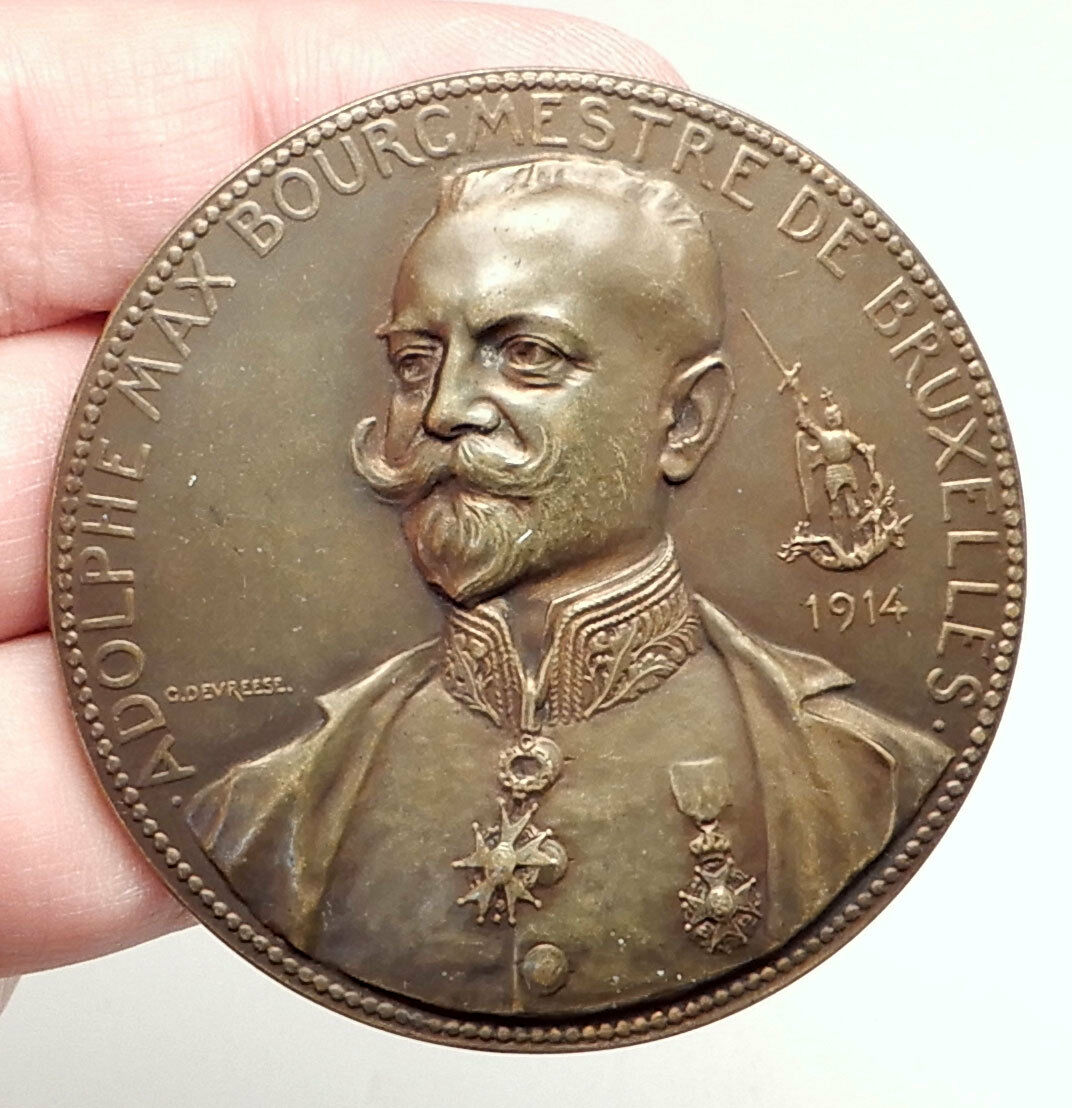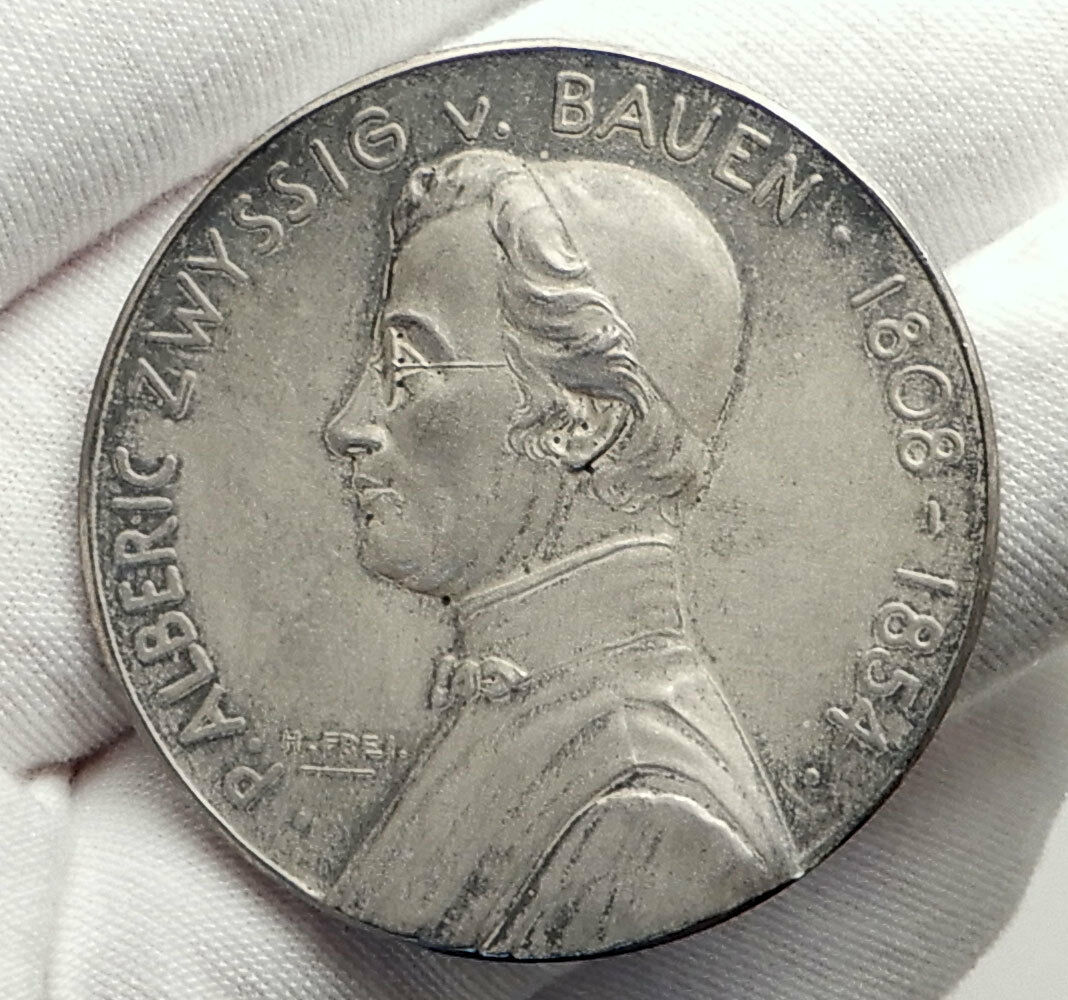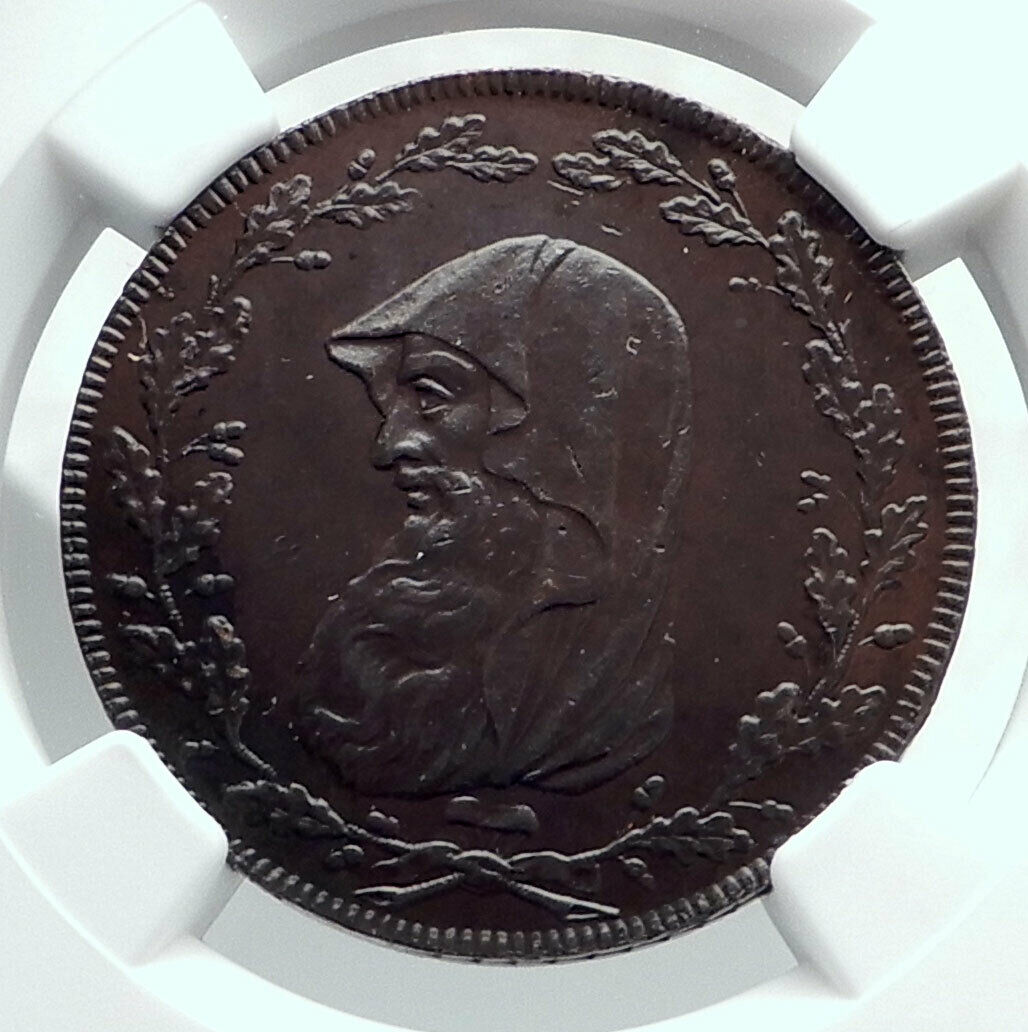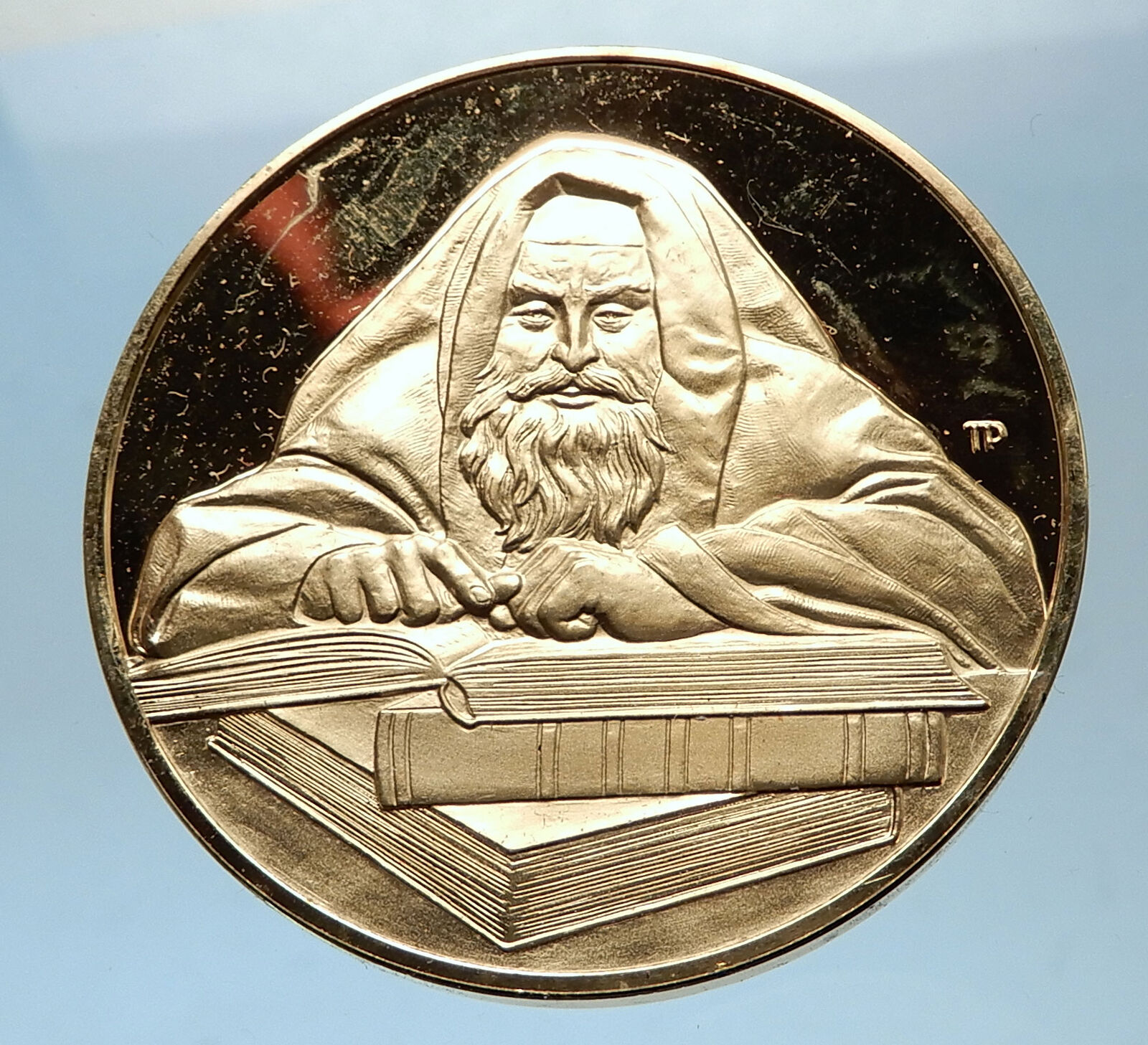|
United States of America
Poseidon – Lost City of Atlantis – Series: Mythical Cities
2000-2020 Silver Medal 39mm (31.30 grams) 0.999 Silver (1.00 oz. ASW)
Reference: N# 302263
POSEIDEN OCEAN EMPEROR, The Greek god Poseidon, known as the ruler of the seas.
Poseidon is shown in full regalia, donning his undersea armor, a crown and
trident, fish and ionic-style temple in background.
THE LOST CITY OF ATLANTIS, A view of the mythological ruins of Atlantis, the
undersea city, is shown. Sharks, stingrays, and other aquatic life can be seen
swimming among the city’s ancient buildings and ionic columns. A school of
jellyfish are visible in the background while a whale passes by the city’s
central rotunda.
You are bidding on the exact item pictured, provided with a Certificate of Authenticity and Lifetime Guarantee of Authenticity.
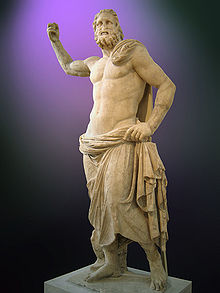 Poseidon was one of the Twelve Olympians in ancient Greek religion and myth, god of the sea, storms, earthquakes and horses. In pre-Olympian Bronze Age Greece, he was venerated as a chief deity at Pylos and Thebes. He had also the cult title “earth shaker”. In the myths of isolated Arcadia he is related with Demeter and Persephone and he was venerated as a horse, however it seems that he was originally a god of the waters. He is often regarded as the tamer or father of horses, and with a strike of his trident, he created springs which are related with the word horse. His Roman equivalent is Neptune. Poseidon was one of the Twelve Olympians in ancient Greek religion and myth, god of the sea, storms, earthquakes and horses. In pre-Olympian Bronze Age Greece, he was venerated as a chief deity at Pylos and Thebes. He had also the cult title “earth shaker”. In the myths of isolated Arcadia he is related with Demeter and Persephone and he was venerated as a horse, however it seems that he was originally a god of the waters. He is often regarded as the tamer or father of horses, and with a strike of his trident, he created springs which are related with the word horse. His Roman equivalent is Neptune.
Poseidon was protector of seafarers, and of many Hellenic cities and colonies. Homer and Hesiod suggest that Poseidon became lord of the sea following the defeat of his father Cronus, when the world was divided by lot among his three sons; Zeus was given the sky, Hades the underworld, and Poseidon the sea, with the Earth and Mount Olympus belonging to all three. In Homer’s Iliad, Poseidon supports the Greeks against the Trojans during the Trojan War and in the Odyssey, during the sea-voyage from Troy back home to Ithaca, the Greek hero Odysseus provokes Poseidon’s fury by blinding his son, the Cyclops Polyphemus, resulting in Poseidon punishing him with storms, the complete loss of his ship and companions, and a ten-year delay. Poseidon is also the subject of a Homeric hymn. In Plato’s Timaeus and Critias, the legendary island of Atlantis was Poseidon’s domain.
Athena became the patron goddess of the city of Athens after a competition with Poseidon, and he remained on the Acropolis in the form of his surrogate, Erechtheus. After the fight, Poseidon sent a monstrous flood to the Attic Plain, to punish the Athenians for not choosing him.
|





 Poseidon was one of the Twelve Olympians in ancient Greek religion and myth, god of the sea, storms, earthquakes and horses. In pre-Olympian Bronze Age Greece, he was venerated as a chief deity at Pylos and Thebes. He had also the cult title “earth shaker”. In the myths of isolated Arcadia he is related with Demeter and Persephone and he was venerated as a horse, however it seems that he was originally a god of the waters. He is often regarded as the tamer or father of horses, and with a strike of his trident, he created springs which are related with the word horse. His Roman equivalent is Neptune.
Poseidon was one of the Twelve Olympians in ancient Greek religion and myth, god of the sea, storms, earthquakes and horses. In pre-Olympian Bronze Age Greece, he was venerated as a chief deity at Pylos and Thebes. He had also the cult title “earth shaker”. In the myths of isolated Arcadia he is related with Demeter and Persephone and he was venerated as a horse, however it seems that he was originally a god of the waters. He is often regarded as the tamer or father of horses, and with a strike of his trident, he created springs which are related with the word horse. His Roman equivalent is Neptune.

